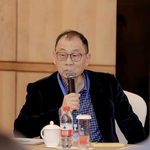Overview
Dear Friends and Colleagues:
On November 13 we are very pleased to host a very special event adjacent to our upcoming Mobility Workshop, our first Workshop on "Manufacturing for Mobility in Mexico".
In recent years, Mexico has quietly but rapidly positioned itself as a central hub for the North American automotive and mobility industry. This transformation, especially in electric vehicle (EV) manufacturing, is reshaping the global supply chain. As geopolitical challenges and shifting trade policies drive companies to seek more efficient, reliable production bases closer to home, Mexico has emerged as a prime near-shoring location for the mobility sector.
At the heart of Mexico's rise is the United States-Mexico-Canada Agreement (USMCA), which came into effect in 2020. The agreement has provided crucial incentives for manufacturers to relocate or expand operations in Mexico by offering duty-free exports to the U.S. and Canada, as long as specific content rules are adhered to. This, along with Mexico's favorable geographic proximity, skilled labor force, and competitive wages, has made it an attractive destination for automakers and parts manufacturers seeking to de-risk their supply chains and shorten logistics routes in a post-pandemic world.
The push toward sustainability and the growing adoption of EVs is accelerating the growth of Mexico's mobility manufacturing sector. OEMs and Tier 1 suppliers have accelerated their investments in Mexico to develop EV platforms, batteries, and the critical components that power these new technologies. Mexico is already home to several major EV manufacturing plants, producing both finished vehicles and many of the critical components required for the electrification of the automotive industry.
Beyond EVs, Mexico has solidified its position as a leading exporter of vehicles and auto parts globally. In 2023, Mexico was the third-largest exporter of cars in the world, with the majority of exports destined for the U.S. and Canada, thanks to the USMCA. Mexico's prowess in auto part production has also surged. With robust infrastructure, competitive manufacturing costs, and seamless logistics networks, Mexico is now responsible for producing a significant share of the auto parts used across North America.
Interestingly, while Western automakers and parts manufacturers have traditionally dominated the Mexican landscape, Chinese companies are now becoming significant players in Mexico's domestic mobility sector. As trade tensions between the U.S. and China have escalated, several Chinese manufacturers are seeking to leverage Mexico's USMCA benefits by establishing production bases to access the North American market duty-free, an issue that may create important tensions in the bilateral U.S.-Mexico relationship.
Additionally, the upcoming US election and recent political developments in Mexico are causing unease among investors.
Former U.S. President Donald Trump has hinted at reviving one of his signature policies: imposing tariffs on imports from Mexico. During his first term, Trump threatened to impose tariffs on a range of Mexican goods, including automobiles, as part of his strategy to renegotiate the NAFTA trade agreement, which ultimately resulted in the USMCA. However, in recent months, Trump has renewed threats of tariffs on Mexican imports if he is re-elected, particularly targeting the automotive sector.
The mere suggestion of tariffs has already sent ripples through the investment community. Tesla has announced they are putting their planned Mexican Gigafactory on hold until after the election.
Vice President Kamala Harris voted against the USMCA on the grounds that its labor and environmental protections didn't go far enough. It is unclear what her position will be if elected President as the USMCA comes up for a formal renewal process in 2026.
Equally troubling to investors are developments on the domestic front in Mexico. President Obrador has pushed for controversial amendments to Mexico's constitution that are expected to weaken the country's judiciary, centralize more power in the executive branch, and potentially compromise the rule of law.
These amendments, especially the recently passed constitutional amendment to elect all federal judges, have drawn widespread criticism from both domestic and international observers, who argue that weakening judicial independence could have far-reaching consequences for foreign investors. On October 1, Mexico swore in its first female president, Claudia Sheinbaum, who is a close ally of the former president and whose position on economic issues are still being revealed.
With these political developments on both sides of the border, it's possible that Mexico's rapid growth as a mobility manufacturing hub could experience a slowdown. Thus, Mexico's automotive and mobility manufacturing sector may be at a crossroads. Mexico remains the United States' top trading partner globally, and we expect that to continue. Yet significant uncertainty remains ahead. It's never been more important to understand these dynamics and their potential impact on the mobility sector in North America and globally.
We will be discussing these and many other important issues at our Workshop on Manufacturing for Mobility in Mexico. For a look at the detailed program, click the tab above called "Sessions".
*****************************
I will be hosting the Workshop at my mountain retreat amidst the redwoods in the moutains near Santa Cruz. It is an idyllic place to spend the day, with gardens, orchards and a pond, and is conducive to relaxed and open discussions. As with other Doon Insights retreats, attendance will be limited so as to preserve the intimate atmosphere, and will consist of leading US and international OEMs, Tier Ones, aerospace companies, investors, startups and other technologists.
Register now to secure your seat for Manufacturing for Mobility in Mexico! We have one and two-day ticket options, if you're interested in attending our companion workshop, MobilityTech 10, on November 12th. We will be providing simultaneous translation services via Wordly at both events.
We look forward to seeing you soon!
Warm Regards,
Howard Chao
Doon Insights




































